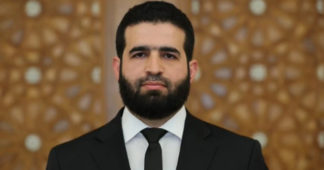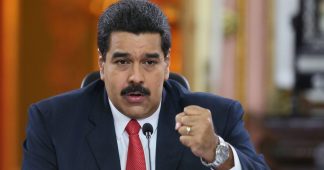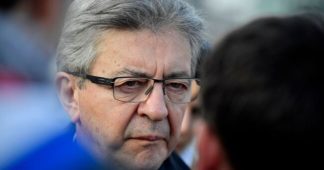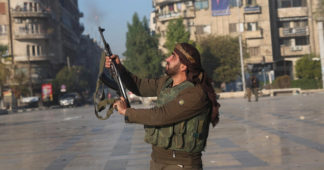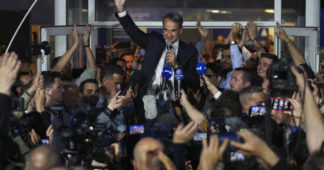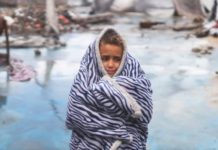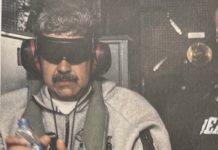Stripped of opposition, oversight, and democratic substance, Syria’s new ‘People’s Assembly’ exposes a deeper crisis in the country’s political system.
Aghiad Hegazi
Oct 19, 2025
A partial parliamentary vote held on 5 October 2025 marked the latest attempt by Syria’s transitional authority to project a veneer of institutional normalcy. Yet the process bore little resemblance to representative politics.
With two-thirds of the People’s Assembly selected via appointed electoral colleges and the remaining third to be handpicked by self-appointed Syrian President Ahmad al-Sharaa (Abu Mohammad al-Julani), the outcome was never in doubt.
No elections took place in Hasakah, Raqqa, or Suwayda, and the process has been widely denounced as a centralization of power disguised as reform.
An assembly manufactured, not elected
Syria’s so-called People’s Assembly was supposed to function as a democratic institution. Far from reflecting the will of the electorate or serving as a check on executive authority, the legislature has become a mere extension of the government that created it.
The electoral process, designed and implemented through a series of decrees, ensured that no actual elections took place – only a performance that produced preordained outcomes.
Rather than empowering Syrians to choose their representatives, the transitional authority led by former Al-Qaeda chief Sharaa has structured the electoral system to guarantee loyalty, not legitimacy. Decree No. 143, issued by the head of the transitional period, redefined the electoral process entirely.
Instead of universal suffrage, it empowered appointed electorates, handpicked by provincial subcommittees and rubber-stamped by the so-called High Elections Committee – an entity formed under executive instruction.
In short, a parliament by decree, not by election.
A council designed to exclude
Clause five of Article 3 in Decree No. 143 stipulates that “the right to run for membership of the People’s Assembly shall be limited to members of the Electoral College.” In effect, Syrians were denied the right to vote or participate directly in the electoral process. Only executive-controlled bodies could do so.
The decree set the number of seats at 210, of which two-thirds – or 140 deputies – would be ‘elected’ by these colleges, while one-third – or 70 deputies – would be appointed directly by the president. The Supreme Committee retained the authority to appoint all electoral bodies, subject to presidential approval.
Elections were entirely postponed in Hasakah, Raqqa, and Suwayda, as well as in the Ain al-Arab (Kobani) district of Aleppo Governorate. These areas were collectively allocated 21 seats, which remain vacant.
“We hope that we will be able to hold elections in all regions before the first session of parliament, but this issue is not certain, and it is subject to the existence of political and security conditions in these areas,” said Nawar Nejmeh, spokesman for the High Elections Committee.
As a result, the seated council consists of just 189 deputies. Of these, 70 were directly appointed by the president, meaning 37 percent of the parliament was selected outright by the executive. The remaining 63 percent were filtered through bodies likewise appointed by the executive.
This raises fundamental questions about the legitimacy of the process. The council was not elected directly by the people.
Over a quarter of the country’s territory, home to millions, was excluded from the electoral process altogether. Several key communities – including Druze, Murshidis, Shias, Syriacs, Circassians, Assyrians, and Armenians – were denied representation.
Most significantly, the executive, not the public, determined the makeup of the legislature, nullifying any oversight function.
Article 30 limits the council’s role to “listening to ministers,” and explicitly denies it the powers of accountability or no-confidence. “The main function of parliament is to support the government and monitor its work,” Nejmeh clarified – meaning that even “monitoring” ends at ceremonial hearings.
No parties, no politics, no opposition
The People’s Assembly is structurally compromised and politically vacant. No opposition parties, no independent blocs, and no national political figures participated in the elections. The field was monopolized by pro-government candidates in an environment where political pluralism was systematically excluded.
Dr Hussein Ragheb, head of the National Reform Party in Syria, tells The Cradle that “members who did not come through free elections do not feel responsible to the voters, but to those who appointed them,” considering that this “empties the legislative work of its oversight content and turns it into a tool for passing government decisions without discussion or amendment.”
“The most dangerous thing that can happen in politics is the erosion of internal legitimacy, as formal elections generate a general conviction that the state does not represent the will of its citizens,” Ragheb warns, noting that this feeling “turns over time into a widespread political reluctance, and even a loss of trust in all state institutions.”
“The parliament in any country is the safety valve between the authority and society, because it absorbs tensions through debate, legislation, and accountability. When the parliament is just an echo of the authority, tensions accumulate in the street instead of being managed within institutions.”
Ragheb adds, “What happened is not just a passing election event, but a sign of a deep crisis in the structure of the Syrian political system. Parliaments that are not freely elected cannot formulate fair legislation, an economy that is not subject to parliamentary oversight loses its balance, and politics that do not reflect the will of the people lose their legitimacy.”
An unrepresentative assembly
Sectarian, ethnic, and gender imbalances further undermine the credibility of the assembly. A field investigation carried out by The Cradle found that Sunnis hold 113 out of 119 seats (94.9 percent), while Alawites – who constitute around 10 percent of the population – received only three seats (2.5 percent). Christians, Ismailis, and Kurds also saw minimal representation. Turkmen representation, however, increased fourfold – an outcome attributed to Turkish political influence in specific areas.
Women’s representation is particularly stark. Despite Decree 143 mandating that “women’s representation shall not be less than 20 percent of all electoral bodies,” only six of 119 deputies (five percent) are women.
Speaking to The Cradle, Kinda al-Hawasli, a former parliamentary candidate and current director at the Syrian Dialogue Center, says this quota was applied to the electorate only, not to parliamentary seats themselves.
“The problem of women’s representation in the recent elections was a complex problem, due to several factors, including the state of intense competition within a society that has been ignored and frozen for half a century, in addition to alliances of a regional or social nature, for example, in Damascus, they were of a somewhat presbyterian nature.”
She adds, “The mechanism was not designed to guarantee the presence of women in parliament, and this could have been remedied, for example, by adopting a system that grants the highest voting seats to the highest women, as opposed to the same for men, as in Damascus, for example, so that the two women who got the votes are relied on against the top eight men, and this did not happen and led to the non-arrival of any woman in the Damascus constituency in which she ran.”
“This imbalance will not be corrected even in the list that will be appointed by the president, because it is limited in number, and therefore it will not be able to represent all segments of women.”
Hawasli explains:
“There are more than 400 laws waiting for the approval of the new parliament, most of which are related to investment and economic measures, which means that the government will be under pressure to pass these laws in line with its directions, which may be at the expense of the daily issues of the citizen, and here the role of women in pushing these issues to the forefront is highlighted.”
“There are many issues that affect women’s lives that are not prioritized by men, despite their importance, such as family, work, and social welfare issues, and this marginalization may lead to delays or neglect to address them, which increases women’s suffering and deepens citizens’ feeling that the council does not really represent them.”
A tool for external agendas
Based on the aforementioned imbalance in composition, representation, and mechanism, it is clear that the aim of this council is to legitimize the existing authority, which has come to power de facto, without a popular referendum, general elections, or even through a revolutionary or military council that brings together the various political and revolutionary forces.
Since the transitional period approved by the Victory Conference, backed by military factions close to the Al-Qaeda-affiliated Hayat Tahrir al-Sham (HTS), which was led by Sharaa, cannot afford to act unilaterally without some institutional veneer. The Assembly provides just that.
Already, Sharaa has hinted at a forthcoming agreement with Israel, brokered by the US. He reportedly told the Turkish daily Milliyet that Damascus is “very close to reaching an agreement with Israel under US mediation.” Yet he also insisted that this “by no means implies normalization of relations with Tel Aviv.”
There are also ongoing discussions about establishing Turkish military bases inside Syrian territory – agreements that require parliamentary ratification to gain legal cover.
None of these decisions reflects a national consensus. But with this assembly in place, they no longer need to.
In this context, legal expert Ghazwan Kronfal informs The Cradle of the new parliament’s function:
“The authority wanted to complete the decoration of its legitimacy by taking measures that promoted it as the best available option for producing the institution of the legislative authority, and thus it had acquired all the executive, judicial, and legislative powers.”
“The legislative council, which was made without nails or teeth, is wanted to be content with a limited legislative function, limited to issuing laws that the authority deems necessary, or amending existing ones,” Kronfal says, noting that “this council has no right to monitor or hold the government accountable, and it can only be described as a functional institution established to fulfill a specific purpose set by the authority that established it.”
The illusion of institutional legitimacy
It is clear that the new Syrian political system is not in a transitional phase toward democracy, but rather remains entrenched in the same authoritarian model it inherited from the former president Bashar al-Assad era – one that uses institutional facades to mask its control. The absence of oversight, accountability, and representativeness reveals a deeper crisis than flawed elections.
By disabling real political participation and reducing the assembly to a rubber-stamp body, the executive has eliminated potential sources of dissent. What remains is a controlled space, tightly managed, and tasked with implementing decisions made elsewhere – be it in the presidential office, foreign embassies, or military headquarters.
Without institutional channels for expressing dissent, Syrians are left with two choices: resignation or rupture. And while the former may be sustainable in the short term, history across the region shows that the latter always follows when people are denied a voice for too long.
.
We remind our readers that publication of articles on our site does not mean that we agree with what is written. Our policy is to publish anything which we consider of interest, so as to assist our readers in forming their opinions. Sometimes we even publish articles with which we totally disagree, since we believe it is important for our readers to be informed on as wide a spectrum of views as possible.
